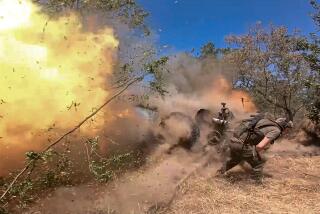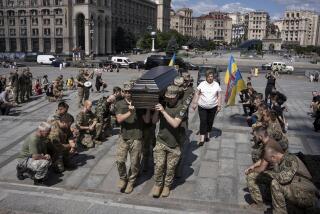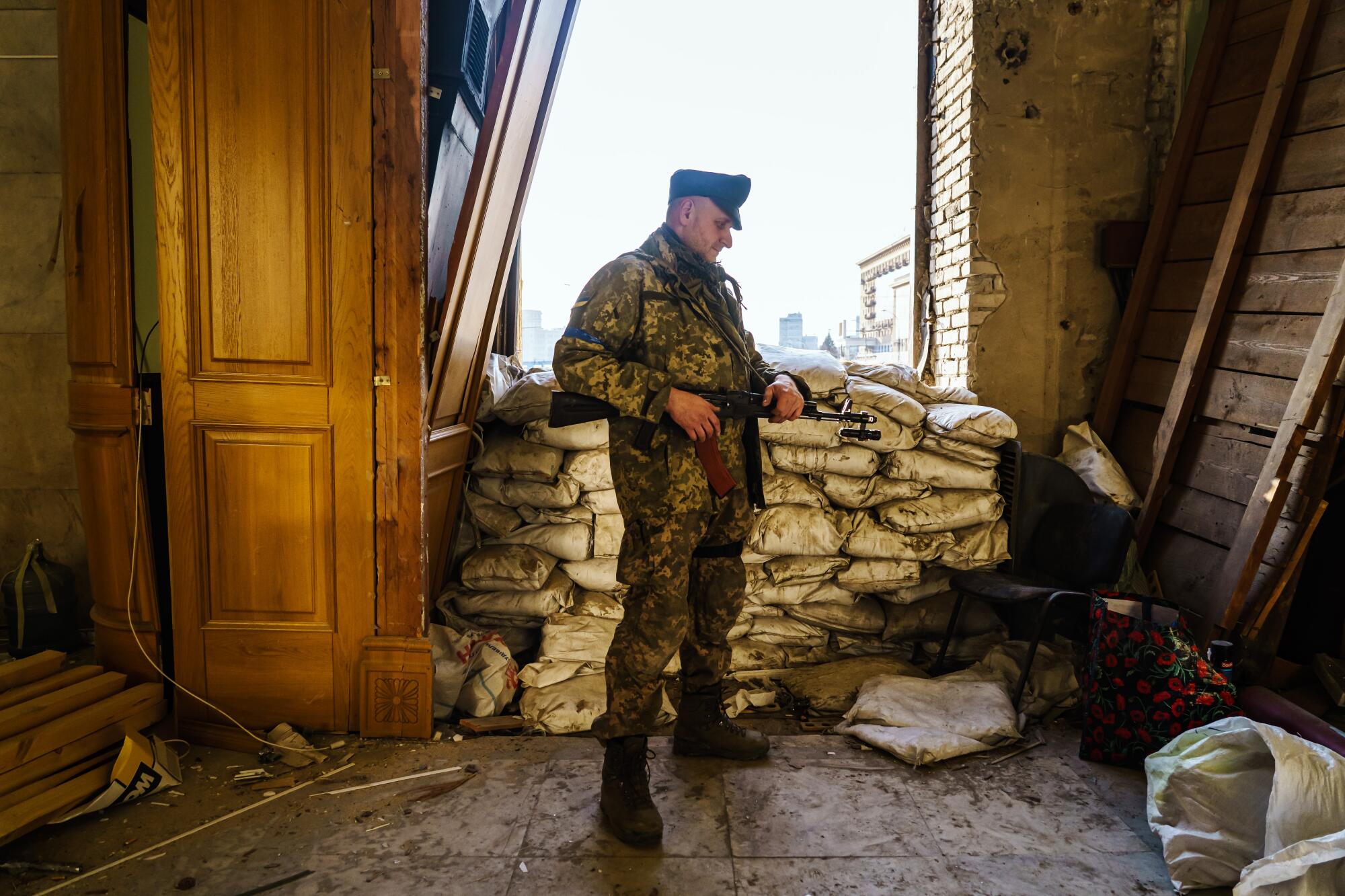
- Share via
KHARKIV, Ukraine — In a war that has upended millions of lives, killed thousands of people and unleashed almost unfathomable destruction across Ukraine, a country of 44 million, he’s only one soldier.
One man, in one particular place — a place that was bombed three separate times.
What citizen-turned-soldier Oleg Supereka experienced this month as he stood guard over the regional administration building in the northeast city of Kharkiv is extraordinary — yet in the surreal context of this war, almost banal.
With Russian troops training battlefield weaponry on cities and towns across Ukraine, combatants and noncombatants alike have found themselves enduring close-range encounters with heavy armaments designed to pulverize military targets and level large infrastructure.
Some people survive; many do not.
“We want to defend our country, after each explosion,” said Supereka, 53, who worked as a portrait photographer before the war.
The portrait he sees daily now is the face of a beloved city disfigured. More than 600 buildings in Kharkiv, Ukraine’s second-largest metropolis, were destroyed in the three weeks ending in mid-March, the city’s mayor reported, and hundreds more have been hit since.
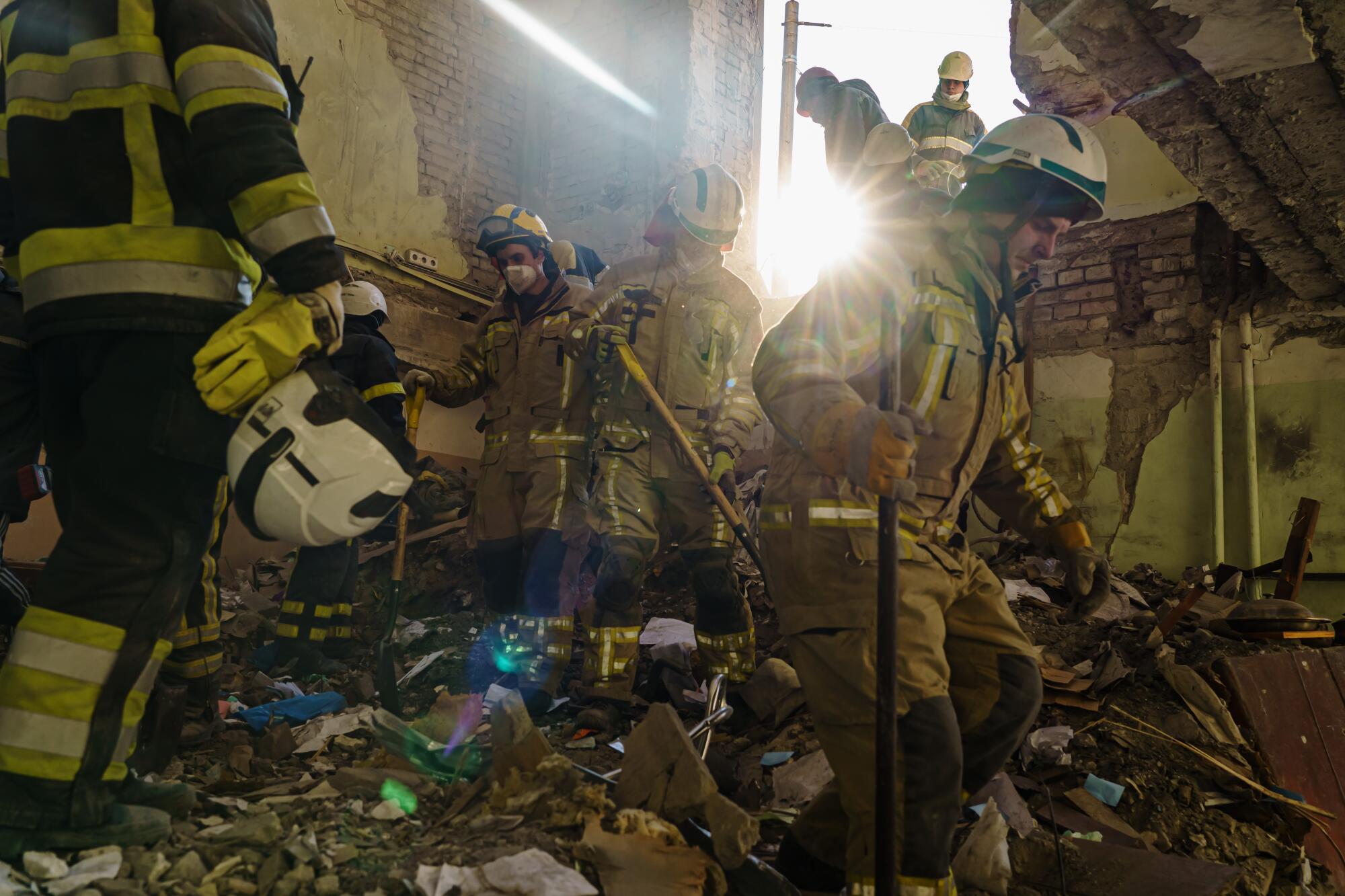
Every day, unrelenting rocket fire, missile strikes and artillery shells pour down on what was a city of 1.4 million people. The regional administrative building Supereka was assigned to help guard — now in ruins — was an enormous Stalinist-style structure situated on Freedom Square, the country’s largest public plaza.
The square was once named for Felix Dzerzhinsky, founder of the Bolshevik-era secret police, but was renamed by a now-sovereign Ukraine after the 1991 collapse of the Soviet Union.
To many, the targeting of a landmark square in Kharkiv’s densely populated city center, less than a week after the invasion’s start on Feb. 24, marked the crossing of a frontier: a clear signal that in this war, nothing was out of bounds — not homes or hospitals, not schools and shops, not cafes and parks.
When a missile hit directly in front of the administrative building on March 1, Supereka was on the fifth floor. The blast was enormously powerful. Dazed, he tried to make his way downstairs. As he did, he realized he’d somehow lost his shoes.
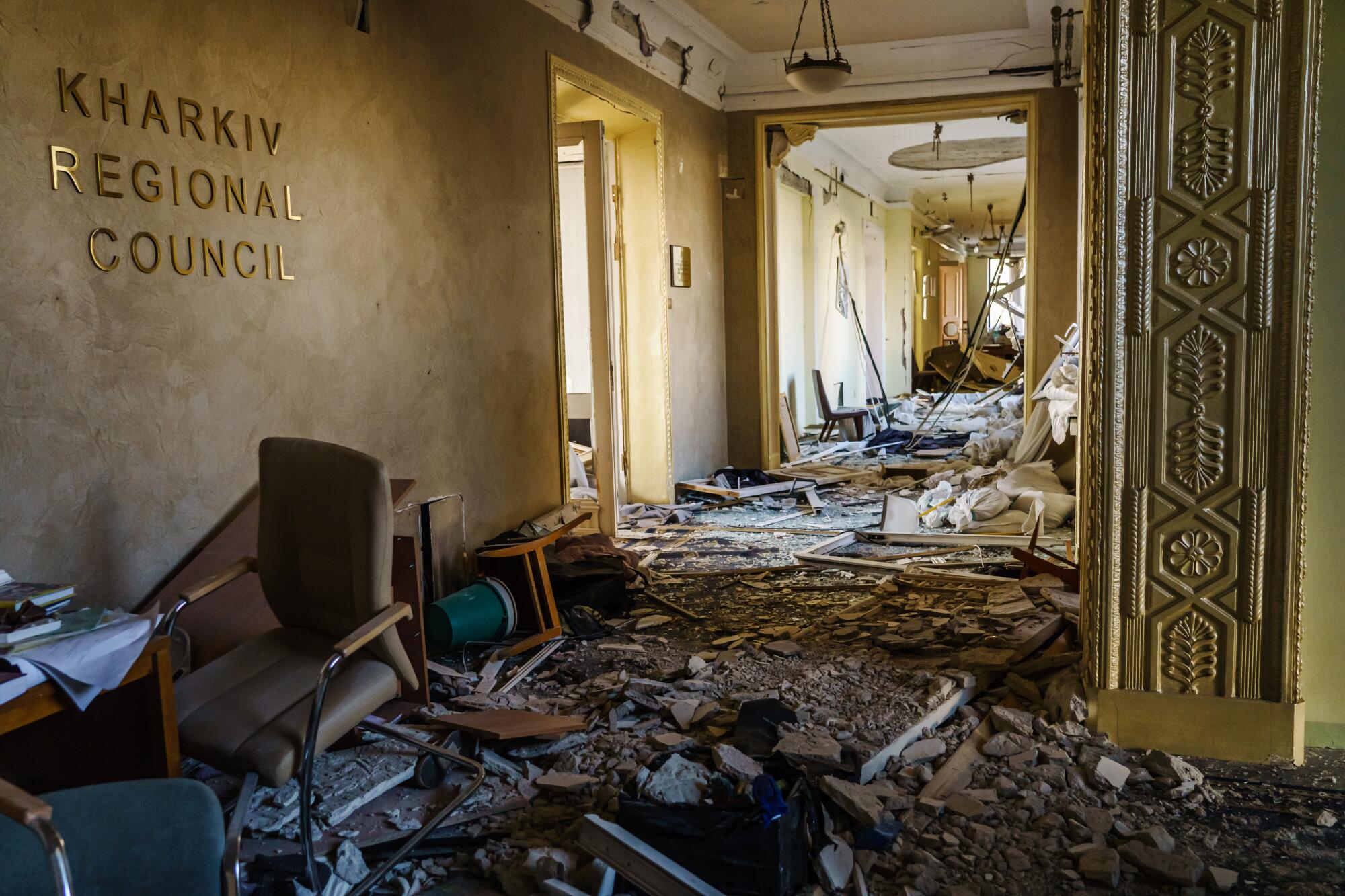
“There was so much glass, so much smoke, dust, you can’t see,” he recounted on a recent day, from his sandbagged guard position in front of the building. “So much blood — on the floor, on the wall, on the faces of the victims.”
It was five or 10 minutes later, he said, that the second explosion occurred, as he and others were trying to render aid to those hurt in the initial blast. Civilians and soldiers joined in the effort, he said, even knowing that yet another explosion might strike at any moment.
“I was helping victims down the stairs, and into the backyard and into the ambulances,” he said. “People were helping the wounded, taking out the dead, gathering their belongings.”
Weeks later, the building’s entire interior still looks like a shaken-up snow globe. On the structure’s southern end, all the floors have collapsed into the basement level, and firefighters have used makeshift planks to try to navigate between what were once separate rooms.
At the basement level, the smell of rotting flesh lingers, and debris still covers areas not yet excavated.
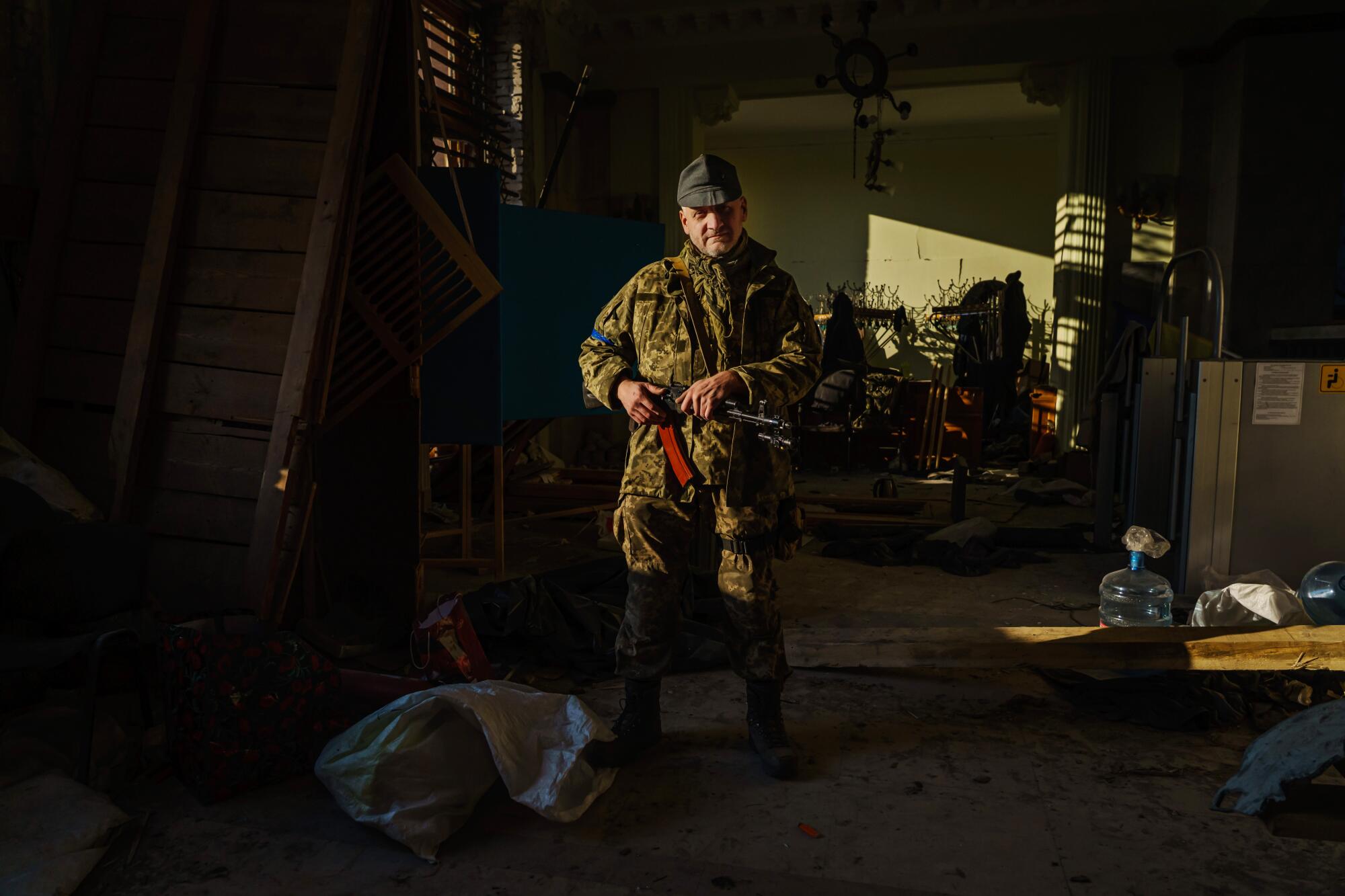
The day after the dual strikes, Supereka was back at his post, even with a concussion and minor injuries, helping clear rubble and debris. The next bombardment came the day after that, on March 3, hitting the courtyard just behind the building.
His memories of that blast are more scrambled. At some point afterward, he came to himself and realized he was clutching a piece of paper in his hand, but couldn’t remember where he’d been and what he was doing just beforehand.
“I didn’t understand why I was holding this paper,” he said. “Later, my friend told me I was with him in the moment the explosion hit.”
One thing he remembers is not being scared. He says he’s still not.
“I feel anger,” he said. “Everyone who was alive, and everyone who was wounded, felt the same anger and determination to protect their Ukraine. There was no fear.”
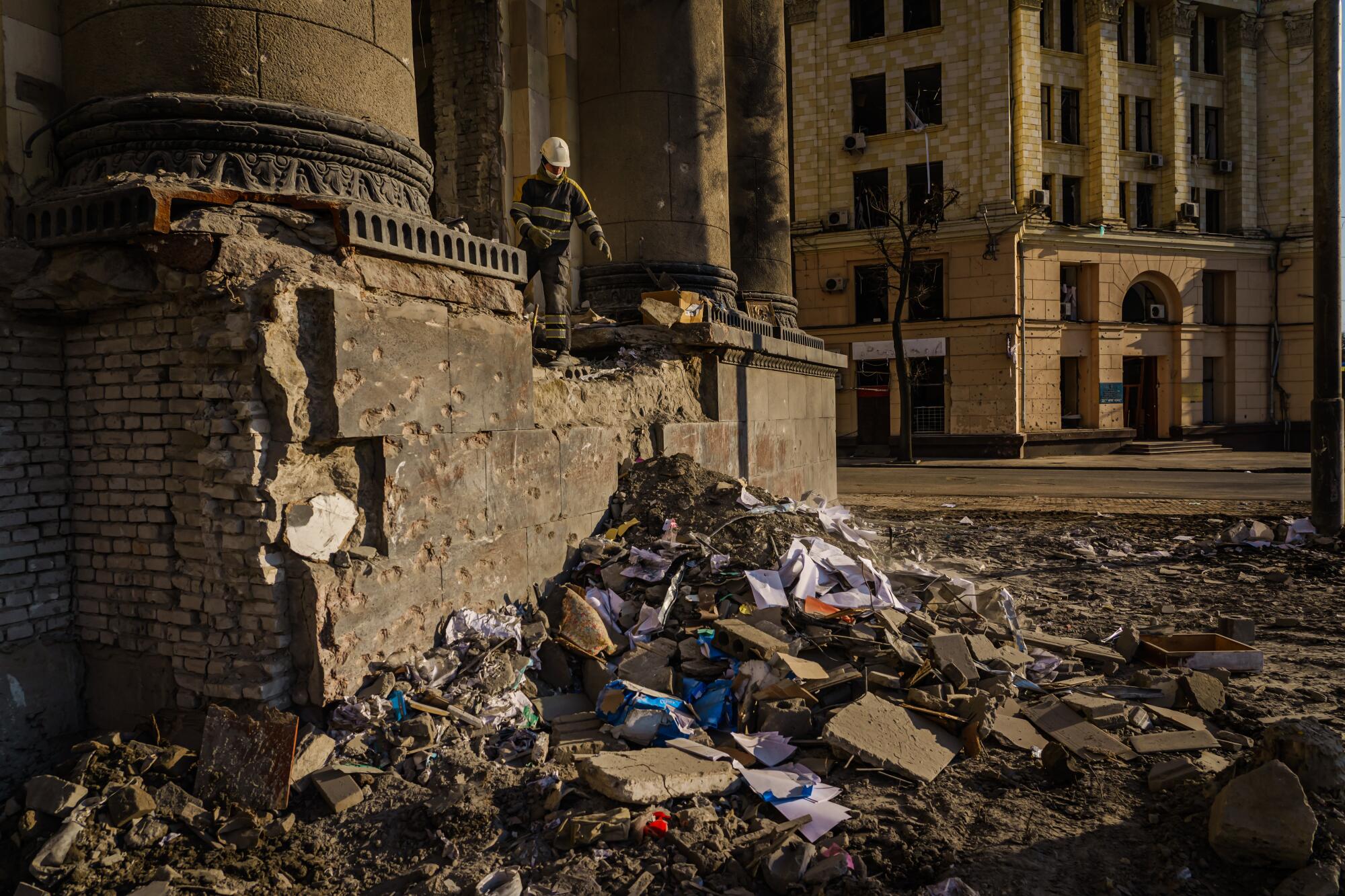
Supereka says Russia may not have realized it was targeting some of its own. He said when the building first came under attack there were prisoners of war inside, but he doesn’t know what happened to them.
After the third strike, he again returned to duty.
“Because it’s my country. It’s my city. My family lives in this town,” he said. “I don’t understand what I could do if I’m not in the army. What must I do if the war starts in my country?”
After the latest attack, Supereka started to have recurring dreams. “At night when I’m sleeping, I can see it again,” he said.
In the building’s courtyard where the third blast hit, there was still a large crater, but debris had been bulldozed aside, into neat piles.
He didn’t know how this war would end, but Supereka said he believed his compatriots had already showed the world their courage.
“We have not had a war for a long time; we are a peaceful country,” he said. “But if someone attacks us, as recent events show, we unite and fight back.”
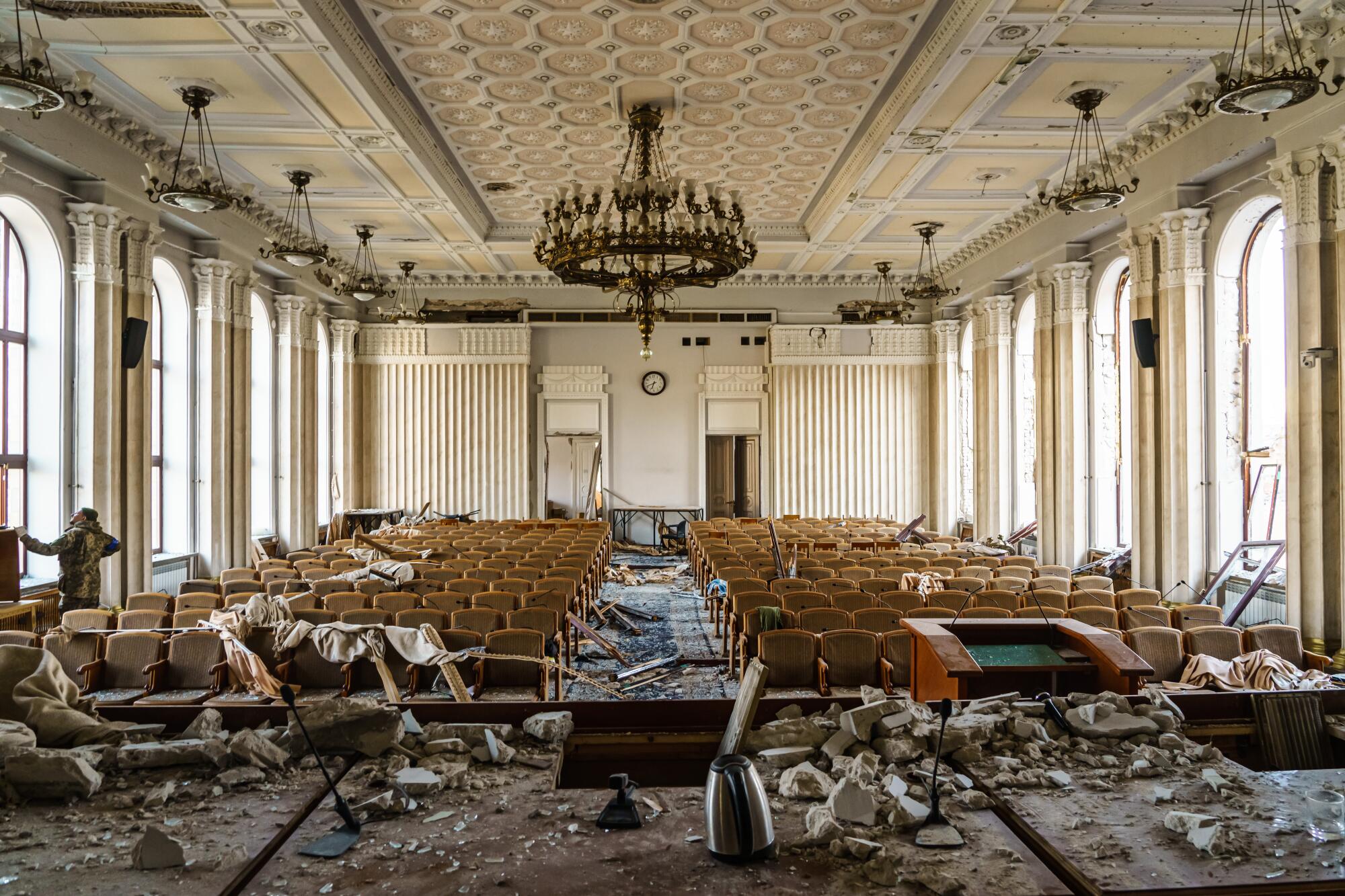
Yam reported from Kharkiv and King from Washington.
More to Read
Sign up for Essential California
The most important California stories and recommendations in your inbox every morning.
You may occasionally receive promotional content from the Los Angeles Times.

